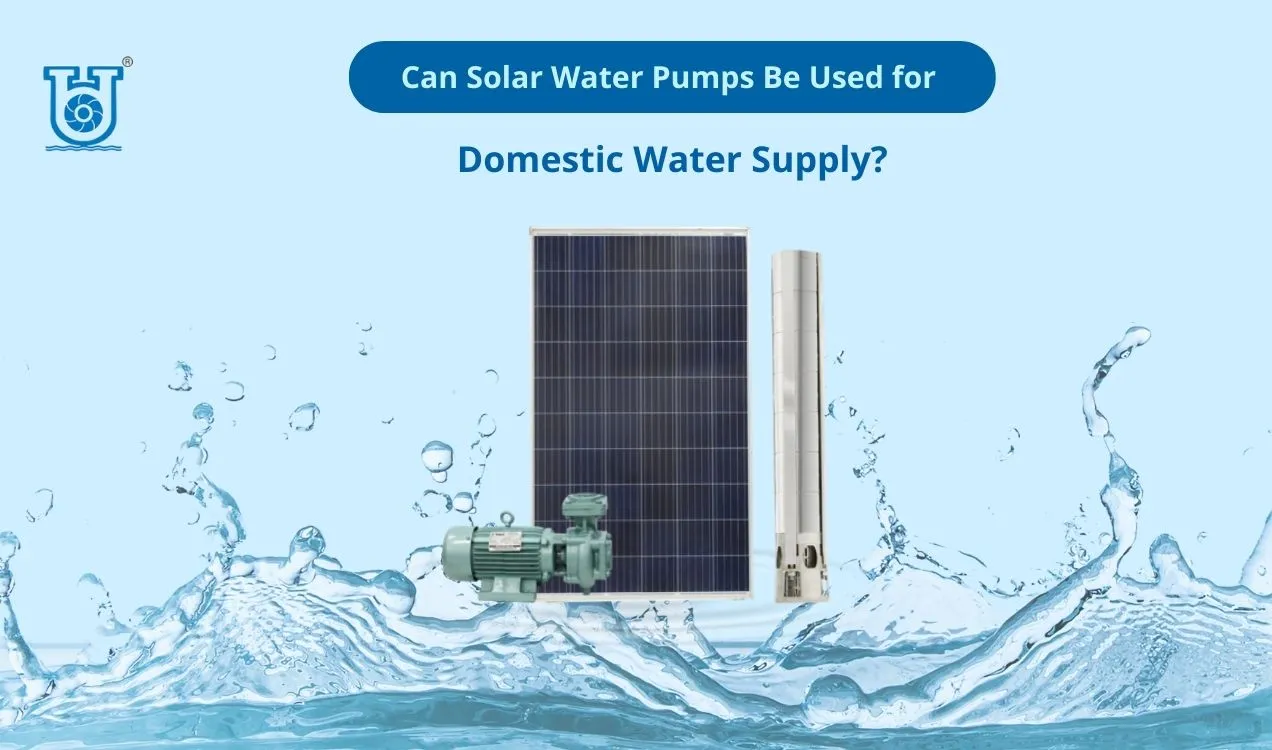The implementation of solar power has gained wide acceptance among domestic residents. The public seeks methods to decrease electrical bills while adopting renewable energy sources. The optimal application of solar power exists in water pumping functions. Solar water pumps demonstrate suitability as devices to supply water for domestic purposes.
The answer is yes! Solar water pumps function as clean water suppliers for domestic residences, agricultural sites, and small settlement areas. These devices provide an economical green pumping system that functions better than conventional electric or diesel-powered pumps.What is a Solar Water Pump?
A solar water pump operates as a water-moving device through energy harvested from solar power. In total three essential components make up a solar water pump system.
- The solar collection system converts solar energy into electricity for usage.
- The Pump Controller operates as a power management system which collects electricity from solar panels for distribution to the water pump.
- Water Pump – Moves water from the source to a storage tank or directly to the home.
The solar panels convert sunlight into electricity that operates the pump under conditions of sunlight. The device enables water transportation from wells and rivers and lakes to required locations. The storage capabilities of batteries enable the system to maintain its operation when sunlight is not available or when skies remain overcast.
Types of Solar Water Pumps
Solar water pumps exist in two fundamental varieties.
1. Surface Pumps
- The pump system applies to situations where water sources exist at shallow depths near the surface.
- The surface pump works effectively with water sources located in shallow well openings or lakes or rivers.
- Solar water pumps find their primary application in residential setups and irrigation.
2. Submersible Pumps
- The system gets mounted at depths within well structures or boreholes.
- The water source must be located at a great depth below the surface to use submersible pump.
- These pumps possess greater power potential which enables them to transport water at elevated heights.
- These pumps function effectively in domestic settings that extract their water from deep wells.
Advantages of Using Solar Water Pumps for Domestic Water Supply
- Saves Electricity Costs: Solar water pumps derive their power from sunlight as their free energy source. The system operates without electricity or fuel requirements thus resulting in substantial long-term financial benefits.
- Works in Remote Areas: Many rural homes and farms struggle with unreliable electricity. The technology enables water pumping operations in regions where electricity grid connections are unavailable thus ensuring a steady water supply.
- Environmentally Friendly: The operation of solar water pumps does not require any emission of carbon or the creation of pollution. Solar water pumps operate through renewable clean energy instead of conventional diesel or electric pumps thus making them an environmentally friendly choice.
- Easy Maintenance: Solar water pumps contain fewer operational components than conventional pumps which decreases their vulnerability to breakdowns. These systems maintain operation for numerous years until large-scale maintenance becomes necessary when properly cared for.
- Reliable Water Supply: When combined with an appropriate storage tank a solar water pump becomes able to supply water without interruption. A storage tank maintained with water will generate a source of water during pump malfunction and low sunlight conditions.
Challenges of Using Solar Water Pumps
- High Initial Cost: The installation and purchase expenses for solar water pumps have high initial financial requirements. The upfront cost of purchasing a solar water pump will pay off since operation expenses will be eliminated.
- Dependent on Sunlight: Solar water pumps deliver their most effective performance in places with high sunlight exposure. The pump fails to function during nighttime or when skies are overcast unless backup batteries are installed.
- Requires Space for Solar Panels: To function efficiently solar panels require sufficient open space for sunlight exposure. When there is limited available space the performance of the pump will be reduced.
- Water Source Depth: Surface water pumps function optimally when extracting water from shallow depths. The depth of the well requires submersible pumps for proper operation.
- Water Needs: Your household needs how much water daily? The selection of a water pump must supply enough water to cover basic requirements such as drinking and cooking and washing along with household tasks.
- Solar Panel Size: The solar panel dimensions should be proportional to the required electrical power of the pump. The increased size of panels creates greater power output which gives the pump longer operating time.
- Battery Backup: Nighttime and cloudy day water requirements can be supported by a battery backup system. The battery function of a storage system enables the water pump to operate continuously when direct sunlight availability is limited.
The output of water from solar water pumps falls below the capacity of electric or diesel pumps. Big household demands or extensive water consumption necessitate expensive large-scale solar water pumping systems.
How to Choose the Right Solar Water Pump for Your Home?
The selection of a solar water pump for home usage requires analyzing these essential points:
Conclusion
Solar water pumps function as a beneficial method for domestic water supply. Solar water pumps prove effective because they work both economically and environmentally well while supplying power to regions with no electrical grid. The long-term advantages of solar water pumps exceed their initial cost and sun-dependent nature along with the high setup expenditures.
A solar water pump stands as an effective sustainable solution for domestic homes seeking a dependable water supply. The system provides clean drinking water for daily usage when properly maintained and planned which lowers dependence on expensive energy systems and polluting energy production methods.


